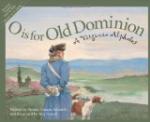And for what striking bits of colonial life has this old courtyard been the setting! Now the exquisite Colonel and his ladies would visit the little capital of Williamsburg; so, at his door, stands ready his “lordly coach and six with liveried outriders in waiting.” Again, the great gates are thrown open to guests arriving on horseback and in chariots and chairs. Pompous, beruffled dignitaries vie with gay gallants in obeisances and compliments to the ladies, and in assisting them to alight without harm to brocades and laces and rich cloaks and wide-hooped petticoats. And, yet again, all is a-bustle here with scarlet-coated horsemen and baying hounds and hurrying black boys and all that goes to
“Proclaim a hunting-morning.”
When the ancient courtyard is left empty again—the colonial coaches rolled off through the gates; the colonial huntsmen up and away and now but distant points of red, fading to the music of hounds and horns—we fall to wondering about those early Virginians.
Such, largely, was their life—abundant leisure, elegant display, exuberant merrymaking. Just such a life, by all the rules, as would produce a useless race devoid of any solidity of mind or of character. Just such a life as in fact produced a race of high-minded, intelligent, and capable men; a race that gave us Washington, Jefferson, Henry, Madison, Marshall, Monroe, and the scarcely lesser names on down the long list of those wonderful sons of the Old Dominion.
It would do no good to ask even that colonial courtyard for an explanation of all this. It simply recalled what it had seen and heard. Nor could we of to-day understand the explanation were we to get it. Unable to reconcile industry and leisure, we underrate the real work that went with the idling of those early Virginians; and as to the gayety, we long ago lost sight of the fact that merrymaking is man-making.
Turning from the gateway, we went down the old courtyard. We followed a walk that led past the kitchen and the dairy, skirted a wall, and then turned through a box-shaded gateway into the garden.
Those December days were not the season of gardens, even in Virginia. The paths led us not where bloom was, but where bloom had been. Yet, truly all times are garden times where warm red walls shut you in with shadowing trees and shrubs, and where ancient box and ivy hedge the prim old ways.
How much our colonial forefathers thought of their gardens! and how much their English forefathers thought of theirs! It was in the blood to have a garden, and to have it walled, and to sit and to walk and to talk in it.
[Illustration: The colonial courtyard gates.]
Walking and talking that day with Westover’s mistress in Westover’s garden, we soon came upon the tomb of the noted William Byrd. Representative as was this master of Westover of all that was most elegant in the colonial life of his day, he was much more than merely a man of the fashionable world. Ability of a high order went with the beauty and the ruffles and the powder. He was statesman, scholar, and author; and in England he had been made, for his proficiency in science, a fellow of the Royal Society.




